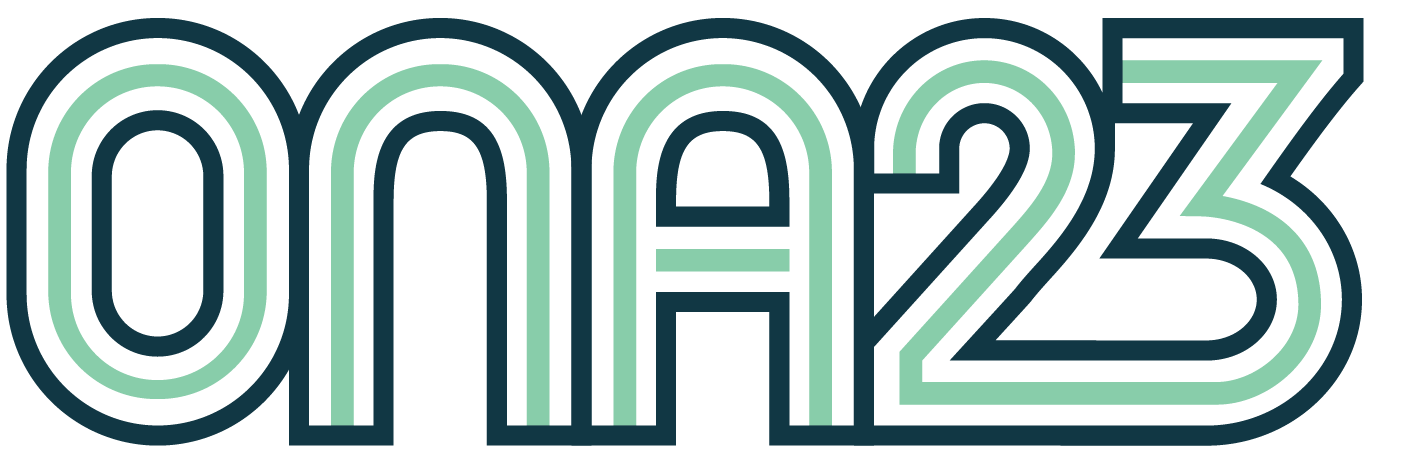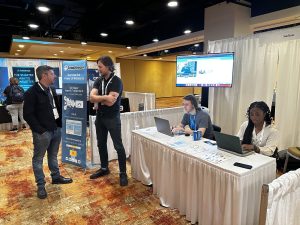The 2023 Online News Association Conference (#ONA23) is Aug. 23–26 in Philadelphia and Sept. 28-29 online.
With community input, we are designing two types of programming this year.
In August, ONA23: Philadelphia will focus on in-person interactive sessions and conversational learning.
In September, ONA23: Onward will be a virtual, lean-back experience focused on sharing the biggest ideas in digital journalism, designed specifically for online participants.
The ONA23 Suggestion Box, open until March 22 at 9 p.m. EDT, is your opportunity to pitch session ideas and presenters.
Everyone is welcome to submit — journalists, executives, educators, students, product managers, change-makers of any stripe — we’ll take good ideas anywhere we can find them.
Here we’ve outlined the factors that make for a strong pitch. Read FAQs and learn more about topics, formats and the selection process.
1. Your idea is inspiring, instructional or both.
We think most good pitches fall into one of two categories:
- They are inspirational or aspirational, represent emerging trends in journalism, surface a provocative idea or describe what journalism could be if we reached a milestone; OR
- They propose sessions to share expertise with clear, specific aims for what attendees might learn.
2. Your idea is solutions-oriented.
There are many intractable problems in any field, journalism included. We look for people proposing solutions to these problems, even if they are imperfect. Simply saying, “disinformation is corrupting democracy” isn’t enough. Instead, we’d be more likely to accept an idea like, “How to confront networked harassment campaigns” or “Let’s discuss the capabilities of solutions journalism.”
3. Your pitch is specific.
We often get vague pitches. For example, “New ways to address managing social media traffic.” It sounds like it might be fresh and solutions-oriented … but how? Can you share examples? Is there research you’ll draw from? Have you been testing something and feel the results are replicable? A vague proposal makes us worry you’ll wing it on the day of the conference, whereas specifics suggest you’ve thought this through and will prepare.
4. Your chief aim is to share knowledge with the community, not brag about a product or project.
Newsrooms create hundreds of cool digital projects every year. We already have a mechanism for rewarding the best ones with the Online Journalism Awards. The conference itself is focused on learning and networking with peers. What did you learn in creating your tool that others might be able to replicate? Better yet, what didn’t work at all? Can you spare others this pain point?
5. You provide resources for reference and sharing.
This is super important for ONA23 as a two-event set of experiences, one in-person and one virtual. People attend conference sessions with a specific purpose: to get inspired by a new idea or learn a new skill. You can drive your point home by offering resources to attendees. Resources might include a list of articles related to your topic; a worksheet for attendees to complete; a breakdown of “Top 10 Tips” from your presentation; a research or white paper and more. These types of resources offer high value for the community and as such make for a strong proposal. It’s why we ask about resources specifically in the Suggestion Box submission form, too.
6. Conference speakers represent diversity and inclusivity.
Diverse perspectives encourage nuanced, innovative ideas. We ask the program team to consider many factors related to ensuring our conference is inclusive of a variety of voices. Chief among these are race, gender and professional experience of presenters. But this list also includes geographic diversity, fresh faces v. past presenters, size of newsroom or team, and other considerations. Describe how your proposal will contribute to the overall diversity of the conference. And, if your proposal highlights work or ideas relating specifically to one community or another, it is important you include someone representing that point of view among your presenters or speakers.
7. You keep the audience in mind.
Nobody wants to sit through a conference session with someone droning on about their accolades or reciting a list of talking points. You will have a disinterested audience before you. Don’t treat them as passive listeners; engage with them! Host a session that’s Q&A-only; ask the room to contribute to a collaborative document to solve a problem; create a worksheet for people to complete in small groups. If you’re presenting at ONA23: Philadelphia, you’ll have some of the best and brightest in journalism right in front of you — pool that talent and get some creative ideas into the room. At ONA23: Onward, make sure those who listen to your ideas have clear takeaways and can share what they heard with others easily.
8. You include peers from other organizations.
ONA is about community and collaboration. Submissions that have multiple speakers from the same organization are often perceived as sales pitches by both ONA and conference attendees, and are usually categorically denied. Submissions including presenters from multiple organizations have a significantly higher likelihood of being accepted. Solo speakers, of course, are exempt from this requirement. Note: If you have presenters from two organizations within the same parent company, such as NPR member stations or Tegna stations, this is fine. Just remember, we do look for diversity in terms of the region and medium that you work in.
9. Your session contributes something new.
We hear the same topics proposed year after year. It makes it difficult to distinguish between some submissions. There are certainly ongoing challenges in journalism, but what makes your idea a fresh approach? A new technical tool? New research? A potential new revenue stream? A different framework for thinking about an issue?
10. Your proposed presenters are experienced speakers or trainers.
We are continually revising our requirements for presenters to ensure session quality. If you have a great idea but are not a strong presenter or have limited training experience, consider inviting a colleague with this strength to join you (keeping the diversity requirements in mind, of course!).
Happy submitting! The deadline for Suggestion Box submissions is Wednesday, March 22, 2023, at 9:00 PM EDT (01:00 UTC).


